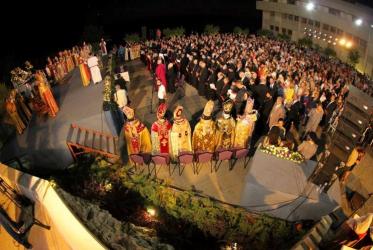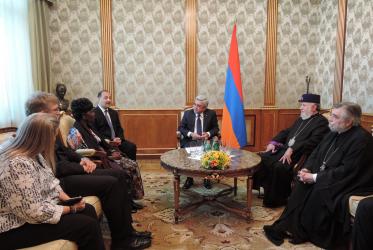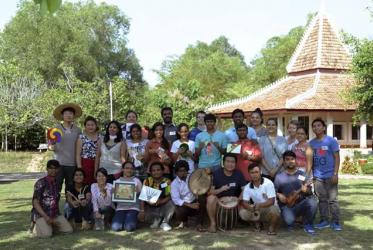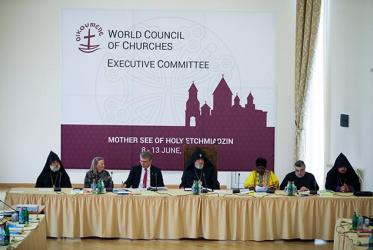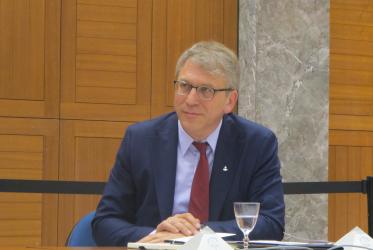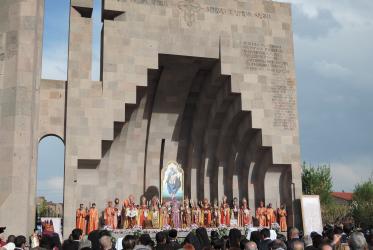Displaying 141 - 160 of 183
WCC Executive Committee speaks out on migrant crises
12 June 2015
WCC leaders meet President Serzh Sargsyan
11 June 2015
Momentum builds for ban on nuclear weapons
16 December 2014
Indigenous faith leaders reflect on resilience and climate change
23 September 2014
New UN document opens door for churches to do more for indigenous rights
23 September 2014
“You don't all have to be the same”
01 July 2014
